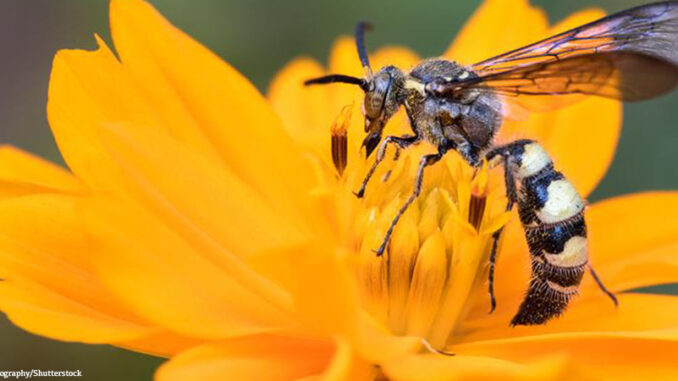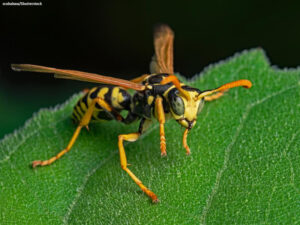
If you’ve ever been stung by a wasp, then you have a pretty good idea of why they aren’t exactly one of nature’s most popular insects. Not many people are happy to encounter a wasp, but scientists are identifying why they aren’t just flying menaces. They’re actually pretty cool! Here, btw takes a look at some of the reasons why wasps are surprisingly beneficial creatures.
Ecosystem Warriors?
It’s not just human beings who fear wasps; they can be pretty vicious to other species as well. For example, one type of parasitic wasp will lay its eggs in the body of another insect. When the eggs hatch, they kill and eat the host insect. (Pretty gross, right?) But think of this another way: wasps are important for pest control. They help control the populations of all kinds of bugs. Without wasps, we’d have to use a lot more harmful bug spray and pesticides.
In fact, wasps are actually essential to our survival. That’s because, like bees, they are important pollinators. In fact, some plants, such as the fig tree, depend entirely on wasps to pollinate them.
Delicious Meal?
While the thought of eating some freeze-dried wasp larvae might make you gag, many people around the world depend on wasps as an important source of nutrition. The larvae and pupae stages of wasp growth are an excellent, low-fat source of protein. In fact, in some parts of the world, there are even wasp farms, where wasps are bred for the sole purpose of producing food for humans.
The Cure for Cancer?

Nobody likes getting stung by a wasp. It’s incredibly painful, and some people even have a dangerous allergic reaction to wasp venom. So, it may sound crazy to say that this venom can be a good thing, but it’s true. Some venom has medicinal qualities. Wasps carry important antibiotics in their venom, as well as in their bodies. It protects them from diseases they could catch from their prey. It turns out that the venom can protect human beings as well. A recent study showed that venom from a certain type of Brazilian wasp can kill cancer cells without harming the normal, healthy ones around it. It does this by tapping into the abnormal lipids in the cancer cell membranes and making holes in them in a matter of seconds.
Kind of Nice?
If all of that isn’t enough to convince you to take a friendlier attitude toward wasps, it may surprise you to know that these insects form relationships with each other in much the same ways as other animals and humans. Wasps communicate with each other by tapping their antennae. They also work together to help their society thrive. Unlike bees, which are born to only be a worker, a drone, or a queen, wasps can take on different roles throughout their life. A single nest can hold up to a thousand wasps, all of which work together to find food, raise young, and protect the nest from danger. There are other wasp species that are solitary and don’t live in a colony. Without a colony to defend, solitary wasp species are often less aggressive and don’t tend to bother humans.
The World of Wasps
Can’t get enough of wasps? The University College of London’s Grant Museum of Zoology in London, England is hosting the world’s first exhibit entirely about wasps. It’s called The World of Wasps, and it is open until late January 2026. The exhibit is free, and combines the use of images, projections, artwork, and virtual reality to allow visitors to experience the “secret” life of wasps. Visitors can view specimens of wasp’s nests and even use virtual reality (VR) technology to travel inside of one.
